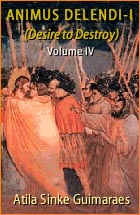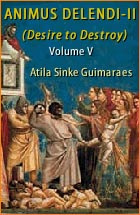Catholic Virtues
 |
 |
 |
 |
 |
 |
 |
The Single Vocation - IV
Calvin: The Single Vocation Is ‘Intolerable’
As everyone knows natural marriage was instituted in Paradise. This is taught in the authoritative Roman Catechism or Catechism of the Council of Trent. In it, it is clearly stated that our first parents were already united by true marriage:
“It is absolutely certain that, before the sin, our first parents, were already united by true Matrimony, even though they still did not have between them any carnal relations, according to the testimony of the Holy Fathers. For this reason, the Holy Fathers affirm that Matrimony is not established by the carnal act but by the consent.” (1)
Virginity is superior to marriage
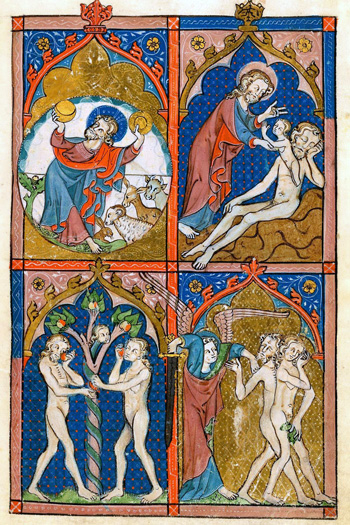 Further, after reaffirming the constant teaching of the Church on the indissoluble nature of marriage, The Catechism of Trent strongly declares that not all are obliged to marry and that, following the Church's constant teaching, the state of virginity is superior to that of matrimony.
Further, after reaffirming the constant teaching of the Church on the indissoluble nature of marriage, The Catechism of Trent strongly declares that not all are obliged to marry and that, following the Church's constant teaching, the state of virginity is superior to that of matrimony.
Commenting on God's first command to Adam and Eve, "Be fruitful and multiply" (Gen 1:28), the Catechism of Trent states:
“When He said, ‘Increase and multiply,’ Our Lord wanted to indicate the end for which He had instituted Matrimony, but not to impose upon each individual the obligation of contracting it. With the present day propagation of the human race, not only is there no law obligating marriage, but, on the contrary, the state of virginity is highly recommended, which Sacred Scriptures present to all as superior to the matrimonial state, as a state of greater perfection and holiness.
“For Our Lord and Savior taught as follows: ‘He that can take it, let him take it’ (Mt 19:12); and the Apostle says: ‘Concerning virgins I have no commandment from the Lord; but I give counsel, as having obtained mercy from the Lord, to be faithful [to that state]’ (1 Cor 7:25).”
The Protestants attack celibacy
This teaching on the superiority of virginity – as priests, religious or lay celibates – was energetically proclaimed in response to a Protestant attack on celibacy. The Protestant heresiarchs had many differences but in general they joined suit in extolling marriage as a holy and a natural (not sacramental) state. At the same time, they strongly accused celibacy as being both immoral (because it violated God's command to "increase and multiply") and unnatural.
According to these revolutionaries, marriage was most definitely not inferior to the celibate state of Catholic priests, monks, nuns and lay persons. Further, because sexual desire was a normal and natural experience of most men and women, this was proof that they were intended to marry and it was “intolerably presumptuous,” as Calvin stated, for a man or woman to make life-long vows of celibacy. (2)
This notion that God intended all human beings to marry – and, therefore, that the celibate man or woman signifies a type of failure – had many consequences, which I plan to address in a future article.
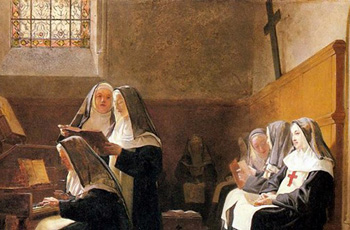
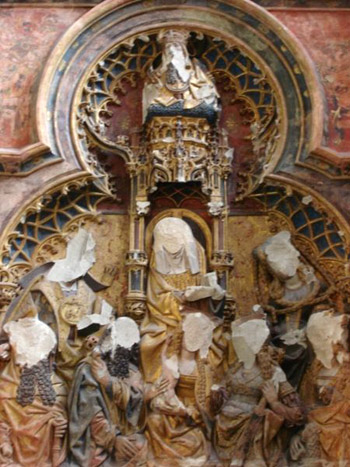 One principal result, which I have already spoken about in my CD “The Protestant Revolution and Women,” is the closing of religious orders for men and women. Henceforth, pastors could, and should, marry. There would be no more “virgin” nuns, an unnatural and unhealthy position for women, according to Protestantism, and later affirmed by Freud.
One principal result, which I have already spoken about in my CD “The Protestant Revolution and Women,” is the closing of religious orders for men and women. Henceforth, pastors could, and should, marry. There would be no more “virgin” nuns, an unnatural and unhealthy position for women, according to Protestantism, and later affirmed by Freud.
By closing the convents and insisting that every woman should marry, Protestantism also stripped the high respect and honor the Catholic Church had always given to virgins. Some of this Protestant spirit certainly seeped into the American culture, from the Colonial Period to our times.
Following the English Protestant tradition, the lay celibate – women in particular – became an object of scorn. Single women, even Catholics who voluntarily chose to remain celibate to dedicate themselves more fully to acts of charity, family duties and prayer, have been labeled "spinsters" or frustrated "old maids." An example of this negative image of unmarried women: the unpopped kernels in a pot of popcorn are called "old maids," worthless kernels that fail to reach their full and proper end.
This is an abhorrent position, opposed to the doctrine of the Catholic Church and denigrating to the women who choose to be celibate. I believe many women with vocations to the lay celibate life choose to marry just to avoid these offensive labels.
I personally have experienced this bias many times in the last 40 years since I made the decision to dedicate myself to the fight for Our Lady’s victory over the Revolution and the restoration of the Church and Catholic Civilization. At the university I was told to “get a life;” priests counseled me to marry or become a religious; family members raised the constant disparaging consolatory remark: “Don't worry, you'll meet someone. We're praying for you.”
It is not just I, but many other single women are treated as second-class citizens in the Church and world. I have heard such sad stories many times in the last years.
This is why I so eagerly support the series of articles on the lay celibate state published on our website (here, here and here). It is long overdue, an opportunity to show the high value the Church had for this state of life.
This superiority of virginity and celibate life was especially recognized in the Early Church and throughout the Middle Ages, before the Protestant revolt spread its poison so insidiously and thoroughly, infecting even Catholic ambiences with wrong thinking about the single vocation.
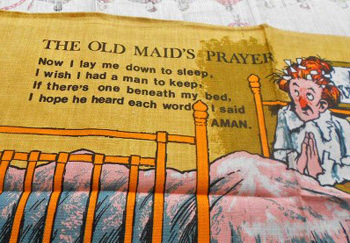
Continued

“It is absolutely certain that, before the sin, our first parents, were already united by true Matrimony, even though they still did not have between them any carnal relations, according to the testimony of the Holy Fathers. For this reason, the Holy Fathers affirm that Matrimony is not established by the carnal act but by the consent.” (1)
Virginity is superior to marriage

The Church teaches that marriage existed in Paradise
Commenting on God's first command to Adam and Eve, "Be fruitful and multiply" (Gen 1:28), the Catechism of Trent states:
“When He said, ‘Increase and multiply,’ Our Lord wanted to indicate the end for which He had instituted Matrimony, but not to impose upon each individual the obligation of contracting it. With the present day propagation of the human race, not only is there no law obligating marriage, but, on the contrary, the state of virginity is highly recommended, which Sacred Scriptures present to all as superior to the matrimonial state, as a state of greater perfection and holiness.
“For Our Lord and Savior taught as follows: ‘He that can take it, let him take it’ (Mt 19:12); and the Apostle says: ‘Concerning virgins I have no commandment from the Lord; but I give counsel, as having obtained mercy from the Lord, to be faithful [to that state]’ (1 Cor 7:25).”
The Protestants attack celibacy
This teaching on the superiority of virginity – as priests, religious or lay celibates – was energetically proclaimed in response to a Protestant attack on celibacy. The Protestant heresiarchs had many differences but in general they joined suit in extolling marriage as a holy and a natural (not sacramental) state. At the same time, they strongly accused celibacy as being both immoral (because it violated God's command to "increase and multiply") and unnatural.
According to these revolutionaries, marriage was most definitely not inferior to the celibate state of Catholic priests, monks, nuns and lay persons. Further, because sexual desire was a normal and natural experience of most men and women, this was proof that they were intended to marry and it was “intolerably presumptuous,” as Calvin stated, for a man or woman to make life-long vows of celibacy. (2)
This notion that God intended all human beings to marry – and, therefore, that the celibate man or woman signifies a type of failure – had many consequences, which I plan to address in a future article.

The Protestants closed the convents; below, the faces of statues of the Our Lady & the virgin Saints smashed by Protestants, Ultrecht altarpiece

By closing the convents and insisting that every woman should marry, Protestantism also stripped the high respect and honor the Catholic Church had always given to virgins. Some of this Protestant spirit certainly seeped into the American culture, from the Colonial Period to our times.
Following the English Protestant tradition, the lay celibate – women in particular – became an object of scorn. Single women, even Catholics who voluntarily chose to remain celibate to dedicate themselves more fully to acts of charity, family duties and prayer, have been labeled "spinsters" or frustrated "old maids." An example of this negative image of unmarried women: the unpopped kernels in a pot of popcorn are called "old maids," worthless kernels that fail to reach their full and proper end.
This is an abhorrent position, opposed to the doctrine of the Catholic Church and denigrating to the women who choose to be celibate. I believe many women with vocations to the lay celibate life choose to marry just to avoid these offensive labels.
I personally have experienced this bias many times in the last 40 years since I made the decision to dedicate myself to the fight for Our Lady’s victory over the Revolution and the restoration of the Church and Catholic Civilization. At the university I was told to “get a life;” priests counseled me to marry or become a religious; family members raised the constant disparaging consolatory remark: “Don't worry, you'll meet someone. We're praying for you.”
It is not just I, but many other single women are treated as second-class citizens in the Church and world. I have heard such sad stories many times in the last years.
This is why I so eagerly support the series of articles on the lay celibate state published on our website (here, here and here). It is long overdue, an opportunity to show the high value the Church had for this state of life.
This superiority of virginity and celibate life was especially recognized in the Early Church and throughout the Middle Ages, before the Protestant revolt spread its poison so insidiously and thoroughly, infecting even Catholic ambiences with wrong thinking about the single vocation.

Protestantism made the unmarried woman the object of derision & pity
- Catecismo Romano,[Roman Catechism by the Council of Trent], Petropolis: Editora Vozes, 1962, pp. 330.
- Oxford Handbook of the Protestant Reformations, ed. by Ulinka Rublack, Oxford University Press, 2017, p, 670.
Continued

Posted January 19, 2018






